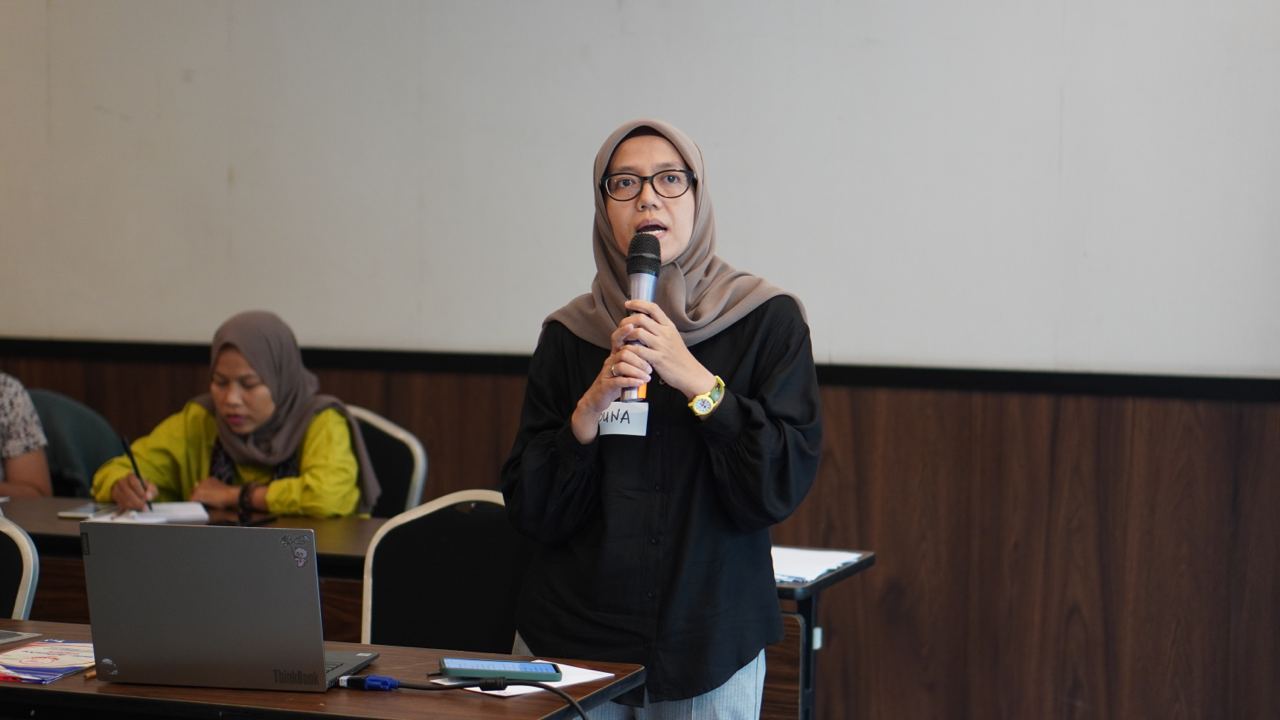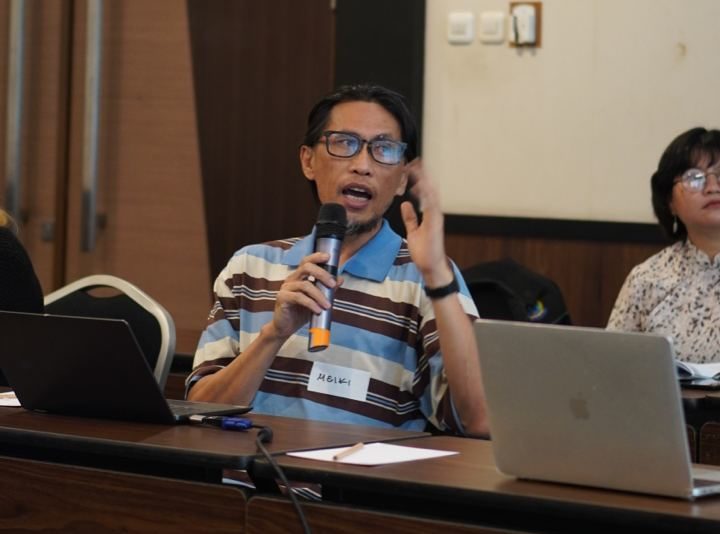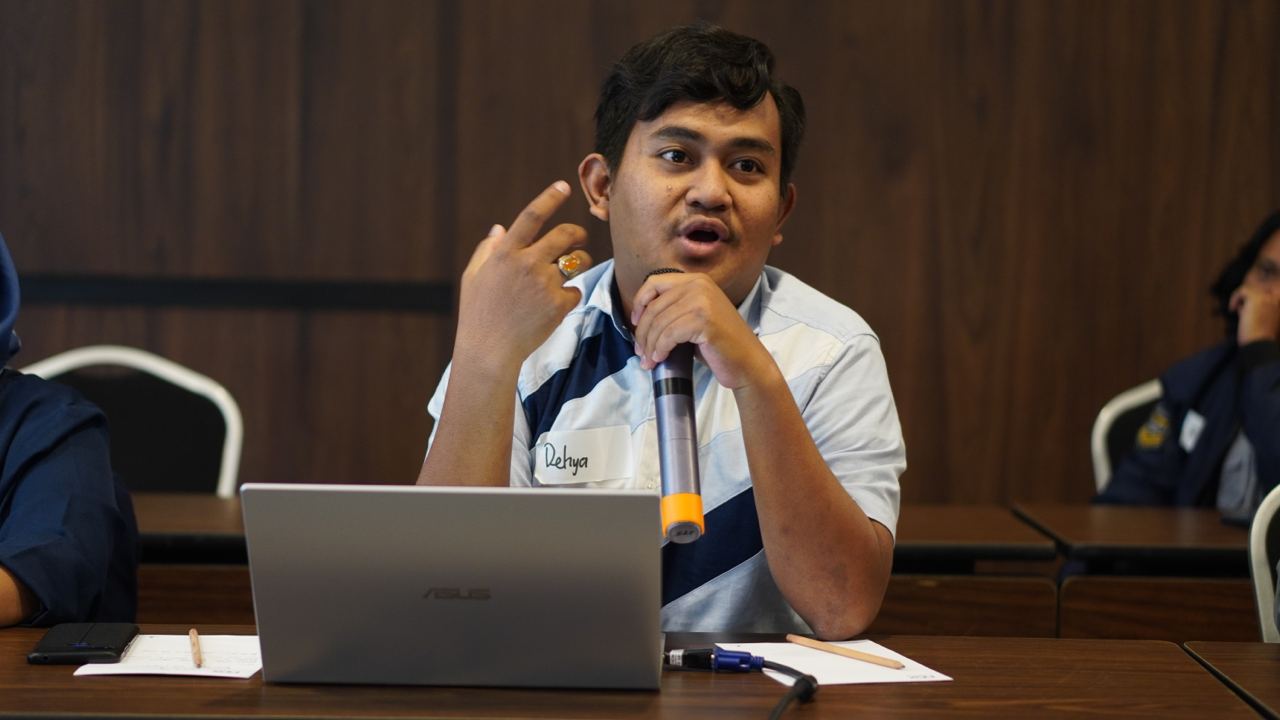Bandung – Publish What You Pay (PWYP) Indonesia held a Focus Group Discussion entitled “The Importance of Inclusiveness and Equality in the Energy Transition in Indonesia” on April 14, 2023, in Bandung. This activity presented several resource persons from civil society organizations, namely Meiki W Paendong (WALHI West Java), Moehammad Dehya Affinas (Koalisi Rakyat Bersihkan Cirebon/KARBON), and Darwinih (Saya Perempuan Anti Korupsi/SPAK). The activity, which participated several participants representing communities from areas in West Java affected by the energy transition process, such as Cirebon and Garut, aimed to map the problems faced by the community from the implementation of Indonesia’s energy transition policy and the development of clean energy projects, identify indicators to realize an equitable energy transition for communities at the local level and vulnerable groups, and formulate recommendations so that gender inclusion and justice are used as a foundation in preparing energy transition policies and planning.
The energy transition is an important issue many countries, including Indonesia, face. Although Indonesia has a 2030 renewable energy projection of around 24 percent, the Indonesian government is committed to achieving zero emissions by 2050 in the energy sector. However, Indonesia has launched the Energy Transition Mechanism – Country Platform (ETM-CP) and the Just Energy Transition Partnership (JETP) to accelerate this decarbonization. These initiatives are expected to help accelerate Indonesia’s transition from fossil fuels to renewable energy and limit power sector emissions through a comprehensive investment plan.
However, inclusivity and equity are issues that must be addressed in this transition. Often the energy transition is only prioritized for carbon reduction or efficiency without considering equity and inclusiveness in its policy planning. In addition, there are also issues regarding land conversion for renewable energy and critical mineral extraction that jeopardize women’s livelihoods and rural household food security.
To address these issues, social dialog is needed in the preparation and process of the energy transition. The government should engage a broader range of stakeholders, for example, indigenous peoples, women, youth, and other marginalized groups, and ensure their involvement in planning and decision-making processes. This equality and social inclusion is crucial to ensure that no group of people is left out and that vulnerable groups have fair access to the opportunities created in an equitable transition.
Meiki, Executive Director of WALHI West Java, said that although West Java is rich in renewable energy sources, the local government has not consistently transitioned. It is evident from the National Medium-Term Development Plan (RPJMD) and the Regional Energy General Plan (RUED), which must be aligned and still show dependence on fossil energy. Energy derived from waste from the Waste Power Plant (PLTSa) is a false solution because it needs cleaner energy. In addition, in transition planning, he considered that community involvement was only a formality (only involving the village head/head of RT/RW). There is also a need for more access and transparency to public data and information. The policies’ accuracy must also be questioned, for example, using electric motors or cars. Instead of encouraging people to buy these modes of transportation, it would be better to improve the quality of public transport so that there are no more private vehicles on the streets, or better to encourage people to install solar panels, provided that there are regulations related to price regulation so that the community can reach them.
Dehya, an environmental activist from Cirebon, explained the impacts of coal-fired power plants in Cirebon on the environment, health, society, and economy. She also stated that licensing to obtain data and information is quite tricky. Meanwhile, Darwinih from SPAK, in her presentation, noted that disability groups in West Java are among the most vulnerable. GEDSI (Gender Equality, Disability, and Social Inclusion) is needed so that there are actions to rebalance power relations regardless of social conditions.
“When talking about energy issues, as far as I know, the PLTU in Indramayu’s planning only involved men; women were not invited. We agree if the GEDSI approach is included in the energy transition policy planning. The perspective is still masculine because the community is not presented, invited to chat, and uneducated”. Therefore, a strategy must reduce disparities and achieve equality and equity by integrating GEDSI from planning, monitoring, and evaluating development policies, programs, and activities in all sectors.
In addition to the resource persons, representatives of relevant groups also played an active role in providing input and opinions on this issue. Furthermore, the event was closed by breaking the fast together. This discussion is expected to increase public awareness and understanding of the importance of inclusiveness and equality in Indonesia’s energy transition.
Author: Raudatul Jannah
Reviewer: Aryanto Nugroho and Mouna Wasef



